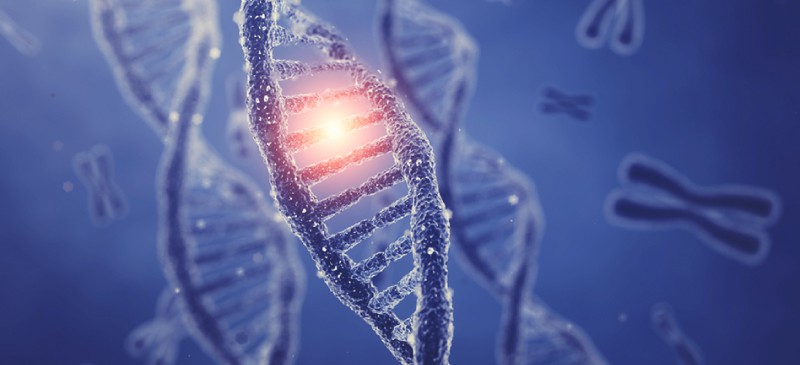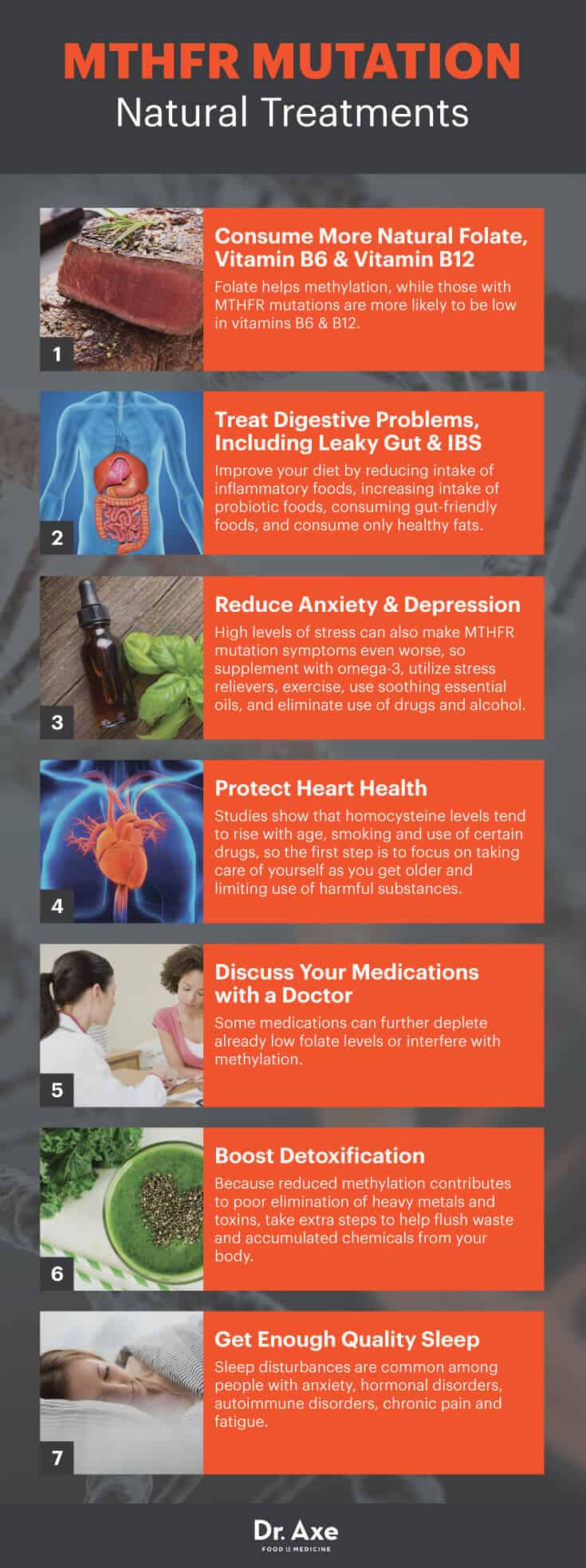This Dr. Axe content is medically reviewed or fact checked to ensure factually accurate information.
With strict editorial sourcing guidelines, we only link to academic research institutions, reputable media sites and, when research is available, medically peer-reviewed studies. Note that the numbers in parentheses (1, 2, etc.) are clickable links to these studies.
The information in our articles is NOT intended to replace a one-on-one relationship with a qualified health care professional and is not intended as medical advice.
This article is based on scientific evidence, written by experts and fact checked by our trained editorial staff. Note that the numbers in parentheses (1, 2, etc.) are clickable links to medically peer-reviewed studies.
Our team includes licensed nutritionists and dietitians, certified health education specialists, as well as certified strength and conditioning specialists, personal trainers and corrective exercise specialists. Our team aims to be not only thorough with its research, but also objective and unbiased.
The information in our articles is NOT intended to replace a one-on-one relationship with a qualified health care professional and is not intended as medical advice.
MTHFR Mutation Symptoms, Diagnoses & Natural Remedies
July 27, 2018

An MTHFR mutation is a problem associated with poor methylation and enzyme production. MTHFR mutations affect every person differently, sometimes contributing to hardly any noticeable symptoms at all, while other times leading to serious, long-term health problems.
Although the exact prevalence rate is still up for debate, it’s believed that up to 30 percent to 50 percent of all people might carry a mutation in the MTHFR gene, which is inherited and passed down from parent to child. (1) Around 14 percent to 20 percent of the population might have a more severe MTHFR mutation that impacts overall health more drastically.
The MTHFR gene mutation was discovered during the completion of the Human Genome Project. Researchers realized that people with this type of inherited mutation tended to develop certain diseases, including ADHD, Alzheimer’s, atherosclerosis, autoimmune disorders and autism more often than those without the mutation.
There is still a lot to learn about what this type of mutation means for people who carry it and go on to pass it along to their children. As the website MTHFR.net states, “Research is still pending on which medical conditions are caused by, or at least partially attributed to, the MTHFR gene mutations.” (2)
To date, there have been dozens of different health conditions tied to MTHFR mutations, although just because someone inherits this mutation doesn’t mean that person will wind up experiencing any problems.
What Is a MTHFR Mutation?
According to the Genetics Home Reference Library, MTHFR is a gene that provides the body with instructions for making a certain enzyme called methylenetetrahydrofolate reductase. In fact, “MTHFR” is the shortened name for this enzyme. (3)
There are two main MTHFR mutations that researchers focus on most often. These mutations are often called “polymorphisms” and affect genes referred to as MTHFR C677T and MTHFR A1298C. Mutations can occur on different locations of these genes and be inherited from only one or both parents. Having one mutated allele is associated with increased risk of certain health problems, but having two increases the risk much more.
An MTHFR gene mutation can change the way some people metabolize and convert important nutrients from their diets into active vitamins, minerals and proteins. Genetic mutations can also alter neurotransmitter and hormone levels. In some cases, although not all, changes in how this enzyme works can affect health parameters, including cholesterol levels, brain function, digestion, endocrine functions and more.
Natural Treatments
1. Consume More Natural Folate, Vitamin B6 and Vitamin B12
Acquiring more folate can help with methylation. Getting more folate is very different than taking some folic acid supplements, however. Some research even suggests that people with MTHFR mutations might have a harder time converting synthetic B9 (folic acid) into its useable form and actually experience worsened symptoms from taking supplements containing folic acid.
Getting enough folate is especially important before and during pregnancy. The period three months before conception and during the first trimester of pregnancy, mothers who get enough folate lower their children’s risk for various health problems. Look for the bioavailable forms of folate in supplements called l-methylfolate or fermented folic acid, which are both processed by the body more like folate, and consume plenty of foods with folate.
L-methylfolate is harder to pack into capsule form, so you may not be able to get very high doses in typical multivitamins or supplement blends — that’s why I recommend taking supplements with fermented folic acid, which is biotransformed into whole-food form by friendly yeast.
Having more folate in your diet means you’re better able to create the active form of 5-MTHF. (4) Some of the best high-folate foods include:
- Beans and lentils
- Leafy green vegetables like raw spinach
- Asparagus
- Romaine
- Broccoli
- Avocado
- Bright-colored fruits, such as oranges and mangoes
Those with a MTHFR mutation are also more likely to be low in related vitamins, including vitamin B6 and vitamin B12. These are easier to obtain from supplements, but food sources are always best. To get more B vitamins, focus on eating enough quality protein foods, organ meats, nuts, beans, nutritional yeast and raw/fermented dairy products.
2. Treat Digestive Problems, Including Leaky Gut and IBS
Digestive complaints are common among people with MTHFR A1298C mutations. Many things affect digestive health, including nutrient intake, inflammation levels, allergies, neurotransmitter levels and hormone levels. For people who are already prone to nutrient deficiencies, leaky gut syndrome can make problems worse by interfering with normal absorption and raising inflammation.
To improve digestive/gut health, the following dietary adjustments can be very beneficial:
- Reduce intake of inflammatory foods, such as gluten, added sugar, preservatives, synthetic chemicals, processed meats, conventional dairy, refined vegetable oils, trans fats and processed/enriched grains (which often include synthetic folic acid).
- Increase intake of probiotic foods, which are fermented and supply “good bacteria” that aids in digestion.
- Consume other gut-friendly foods, including bone broth, organic vegetables and fruit, flaxseeds and chia seeds, and fresh vegetable juices.
- Focus on consuming healthy fats only, like coconut oil or milk, olive oil, grass-fed meat, wild-caught fish, nuts, seeds, and avocado.
3. Reduce Anxiety and Depression
Because of how it can negatively affect levels of neurotransmitters and hormones like serotonin, testosterone and estrogen, MTHFR mutations are tied to higher incidences of mental disorders, including anxiety, depression, bipolar disorder, schizophrenia and chronic fatigue. High levels of stress can also make MTHFR mutation symptoms even worse. Tips for dealing with these conditions include:
- Supplementing with omega-3 fatty acids: Help to reduce inflammation and are beneficial for cognitive health.
- Regularly practicing natural stress relievers: These include meditation, journaling, spending time outside, giving back or volunteering, praying, etc.
- Regularly exercising: Helps to improve hormonal balance and sleep quality.
- Using soothing essential oils, including lavender, chamomile, geranium, clary sage and rose.
- Eliminating use of recreational drugs and reducing alcohol intake, which can both make symptoms worse by interfering with methylation. (5)
4. Protect Heart Health
Studies show that homocysteine levels tend to rise with age, smoking and use of certain drugs, so the first step is to focus on taking care of yourself as you get older and limiting use of harmful substances. (6) Other tips for keeping your heart healthy include:
- Eating a healthy diet, especially one with plenty of high-fiber foods
- Getting regular exercise and keeping your weight in a healthy range
- Managing stress to prevent worsened inflammation
- Consider taking the following supplements, which can help improve blood flow, cholesterol and blood pressure: magnesium, omega-3s, CoQ10, carotenoids and other antioxidants, selenium, and vitamins C, D and E.

5. Discuss Your Medications with a Doctor
Some medications can further deplete already low folate levels or interfere with methylation. Speak with your doctor if you take any of the following drugs, which might make symptoms worse: (7)
- Antibiotics, specifically sulfa-containing drugs like Sulfamethoxazole and trimethoprim (SEPTRA or Bactrim), sulfasalazine or triamterene (found in Dyazide)
- Birth control pills
- Hormone replacement therapy drugs
- Anticonvulsants (like phenytoin and carbamazepine)
- Antacids/acid blockers
- NSAID pain relievers
- Antidepressants
- Chemotherapy treatments
- Cholesterol-lowering drugs (like niacin, acid sequestrants, cholestyramine, colestipol and colesevelam)
- Nitrous oxide (typically during dental work)
- Methotrexate for rheumatoid arthritis
- Metformin for diabetes and PCOS
6. Boost Detoxification
Because reduced methylation contributes to poor elimination of heavy metals and toxins, take extra steps to help flush waste and accumulated chemicals from your body. Tips for improving your ability to detox include:
- Consuming fresh vegetable juices to increase antioxidant intake
- Taking activated charcoal
- Drinking plenty of water and avoiding alcohol or tobacco
- Dry brushing
- Taking detox baths
- Exercising regularly
- Sitting in saunas
- Occasionally fasting in a healthy way or using natural enemas
- Only using natural beauty and household products that are free from harsh chemicals
7. Get Enough Quality Sleep
Sleep disturbances are common among people with anxiety, hormonal disorders, autoimmune disorders, chronic pain and fatigue. Make it a priority to get seven to nine hours every night, sticking to a regular schedule as much as possible. To help you get better sleep, try natural sleep aids like:
- Create a relaxing bedtime routine
- Use essential oils
- Stay off of electronic devices
- Read something soothing
- Cool your bedroom a bit, and make it very hard
Symptoms and Signs
Although researchers still aren’t entirely sure which diseases and disorders an MTHRF mutation might contribute to most, evidence exists that the following health problems (and more) are tied to one of two primary forms of genetic MTHFR mutation: (2)
- Autism and other childhood learning developmental problems
- ADHD
- Down syndrome
- Depression and anxiety
- Spina bifida
- Schizophrenia
- Bipolar disorder
- Autoimmune disorders and thyroid disorders
- Addictions (alcohol and drug dependence for example)
- Chronic pain disorders
- Migraines
- Heart problems, including low HDL “good” cholesterol levels and high homocysteine levels
- Hormonal problems and fertility problems, including miscarriages and PCOS
- Pulmonary embolisms
- Fibromyalgia
- Diabetes
- Chronic fatigue syndrome
- Parkinson’s disease, other tremor disorders and Alzheimer’s disease
- Strokes
- Digestive problems, including irritable bowel syndrome
- Problems during pregnancy, including preeclampsia and postpartum depression
The severity and type of symptoms that someone experiences depends on the variant of the mutation the person has, along with much how the ability to carry out methylation and make MTHFR enzymes is impacted. Some people produce up to 70 percent to 90 percent fewer enzymes than those without MTHFR mutations. Other experience much less drastic drops in enzyme levels, around 10 percent to 30 percent.
Causes and Risk Factors
The primary reason that MTHFR mutations cause health problems is due to disturbing the normal process of methylation.
To understand why this mutation can raise your risk for common disorders, it helps to first understand the important roles that methylenetetrahydrofolate reductase normally plays. MTHFR normally: (8)
- Facilitates the process called methylation, which is a metabolic process that switches genes on and off and repairs DNA. Methylation also affects nutrient conversions through enzyme interactions.
- Forms proteins by converting amino acids (often called “the building blocks of proteins,” which we mostly obtain from foods).
- Converts the amino acid called homocysteine into another amino acid called methionine. This helps keep cholesterol levels balanced and is important for cardiovascular health. Elevated homocysteine levels put someone at a greater risk for heart attacks, strokes and other problems.
- Carries out chemical reactions that help the body process the vitamin folate (also called vitamin B9). This is done by converting one form of the methylenetetrahydrofolate molecule into another active form called 5-methyltetrahydrofolate (or 5-MTFH for short). Folate/vitamin B9 is required for numerous critical bodily functions, so the inability for the body to make and use enough — or a folate deficiency — can affect everything from cognitive health to digestion.
- Methylation is also tied to natural detoxification because it helps eliminate heavy metals and toxins through the GI tract in a timely manner.
- Methylation also helps with the production of various neurotransmitters and hormones, including serotonin. Deficiencies in these neurotransmitters can affects things like your mood, motivation, sleep, sex drive, appetite and digestive functions. Abnormal levels of neurotransmitters are tied to ADHD, depression, anxiety, IBS and insomnia
- In order for methylation to take place, the body requires the presence of a certain active amino acid called SAMe, which helps regulate more than 200 different enzyme interactions. Without it, methylation stops.
Whether you carry the MTHFR C677T or MTHFR A1298C mutation determines if you’re more likely to suffer from certain diseases than others. (9)
- MTHFR C677T mutations are tied to cardiovascular problems, elevated homocysteine, stroke, migraines, miscarriages and neural tube defects. Some studies suggest that people with two C677T gene mutations have about a 16 percent higher chance of developing coronary heart disease compared to people without these mutations. (10)
- MTHFR A1298C are tied to higher levels of fibromyalgia, IBS, fatigue, chronic pain, schizophrenia and mood-related problems. This is especially true if you’ve inherited the mutation from both parents or have both forms of MTHFR mutations. (11)
Someone can either have a heterozygous MTHFR mutation (from one parent) or a homozygous mutation (from both parents). Those with homozygous mutations tend to have more severe symptoms and health problems due to having lower methylation and enzyme production.
Testing and Diagnosing
Many people have no idea that they carry an MTHFR mutation gene that contributes to their symptoms. How can you know if you’re carrying one of several common MTHFR mutations?
If you suspect you might be affected by an MTHFR mutation, consider having a genetic test performed, which is a simple blood test that can confirm your suspicions. This type of test isn’t routinely ordered by doctors but might be recommended if someone has high homocysteine levels or a family history of heart complications. Other tests that can help confirm a mutation include heavy metal tests, urine tests, homocysteine level tests, folic acid tests, leaky gut test and hormone level testing.
Because it’s a problem related to an inherited gene, there is no way to “cure” an MTHFR mutation — however certain lifestyle changes and natural treatments can help manage symptoms and make complications less likely. Natural treatments for methylation problems depend on your specific symptoms and condition. The steps above can help reduce symptoms caused by disorders related to MTHFR mutations.
Precautions
As mentioned above, MTHFR mutations are genetic and inherited. Developing problems from a mutation is not guaranteed. If you have a personal or significant family history of one or more of the above illnesses, it’s probably worth speaking with your medical provider about being tested for an MTHFR mutation.
To be clear, MTHFR genetic mutations are not the only type that are capable of changing the way that methylation is carried out or that homocysteine is converted. This is part of what makes researching disorders related to this mutation difficult. Before assuming that MTHFR mutations are the cause of any your symptoms, get confirmation through testing and discuss results with your doctor. Don’t change medications without guidance, and get a second opinion if advice you receive seems unsafe.
Final Thoughts
- MTHFR mutations are caused from inheriting one or more mutated genes that interferes with the normal process of methylation, folate conversion and enzyme production.
- Health conditions associated with MTHFR mutations include autism, ADHD, fertility problems, depression, heart problems, mood disorders and autoimmune disorders.
- Other factors can also make MTHFR mutation symptoms worse by further decreasing folate levels and raising homocysteine levels, including eating a poor diet, leaky gut syndrome/poor absorption, malnutrition, gastrointestinal illness, high amounts of stress, alcohol and drug use, and toxin exposure.
- Natural treatments and ways to manage MTHFR symptoms include improving gut health, getting more natural folate from your diet, acquiring more vitamin B6 and B12, exercising, lowering intake of inflammatory foods, and managing stress.
Read Next: Vitamin B12 Benefits That You’re Probably Missing





